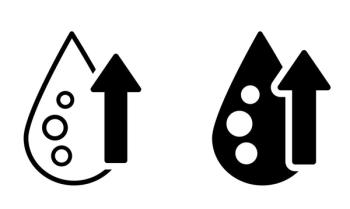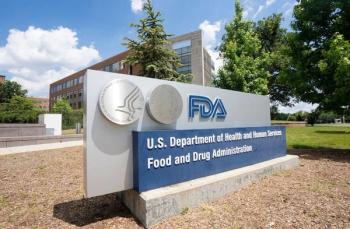
AAN: Rapid LDL Drop Predicts Diminished Risk of Second Stroke
BOSTON -- The risk of a second stroke declined significantly among patients who had a large reduction in LDLs within a month of starting on a statin, investigators reported here.
BOSTON, May 4 -- The risk of a second stroke declined significantly among patients who had a large reduction in LDLs within a month of starting on a statin, investigators reported here.
A new analysis of data from the SPARCL (Stroke Prevention by Aggressive Reduction in Cholesterol Level) trial showed that each 10% decrease in LDL reduced the risk of an ischemic stroke by 4%, and the risk of myocardial infarction by 7%, reported Pierre Amarenco, M.D., of the Denis Diderot University in Paris.
The average LDL decrease after one month on atorvastatin (Lipitor) at 80 mg daily was 53%, said Dr. Amarenco at the American Academy of Neurology meeting here.
"In this sub-analysis, we were interested in explaining how LDL cholesterol, HDL cholesterol, and systolic blood pressure at baseline predicted the risk of recurrent stroke during the trial, and whether LDL cholesterol at one month on treatment also predicted the risk," said Dr. Amarenco.
Initial results of the SPARCL trial were reported in the Aug. 10, 2006, issue of the New England Journal of Medicine. They showed that among patients assigned to atorvastatin at 80 mg/day within six months of a first stroke or transient ischemic attack, there was a 2.2% five-year absolute reduction in the risk of stroke (P=0.03) and a 16% relative reduction in risk of fatal or nonfatal stroke compared with placebo.
Statin therapy did not reduce the risk of death, but was significantly associated with lower rates of stroke or TIA, coronary events, nonfatal MI and other major cardiovascular events, and revascularization.
High-dose atorvastatin was also associated, however, with a 66% increase in the relative risk for hemorrhagic stroke in the SPARCL trial.
In the trial, 4,731 patients were randomly assigned to receive atorvastatin or placebo daily for five years. The primary endpoint was fatal and non-fatal stroke, and the secondary endpoint was major cardiovascular events.
The patients had no prior history of heart disease, and LDLs from 100 to 190 mg/dL.
In the sub-analysis reported here, Dr. Amarenco and colleagues found that LDL at baseline was not by itself a significant predictor for recurrent stroke, as shown in other epidemiological studies.
In contrast, the change in LDL levels after one month on therapy were strongly predictive of a second stroke.
"Patients on atorvastatin 80 mg had a dramatic reduction in stroke risk and coronary heart disease events," said Dr. Amarenco. "In fact, we calculated that for each 10% LDL cholesterol reduction, we had a 4% reduction of stroke risk, and a 7% reduction of major coronary events, and we had a mean 53% in reduction in LDL cholesterol at month one."
The SPARCL investigators also found that a one standard deviation increased in HDL was a strong predictor of stroke-risk reduction.
Dr. Amarenco commented that the findings are clinically significant because even when patients who have suffered a stroke are treated with anti-hypertensives, anti-platelet therapy, and statins, there is still a residual risk of second stroke.
"The finding that HDL cholesterol is protective may open new avenues for stroke prevention," he said. "It may be that in the future, and HDL-increasing agent may further decrease the residual risk on top of best clinical care."
The ideal HDL-raising agent has yet to be found, however. Pfizer, maker of atorvastatin, halted all trials of its experimental HDL-boosting agent torceptrapib in 2006, after the agent was shown to boost blood pressure as well as HDL levels, and was associated, in combination with atorvastatin, with an excess number of deaths and cardiovascular events in a pivotal trial.
Newsletter
Enhance your clinical practice with the Patient Care newsletter, offering the latest evidence-based guidelines, diagnostic insights, and treatment strategies for primary care physicians.

































































































































